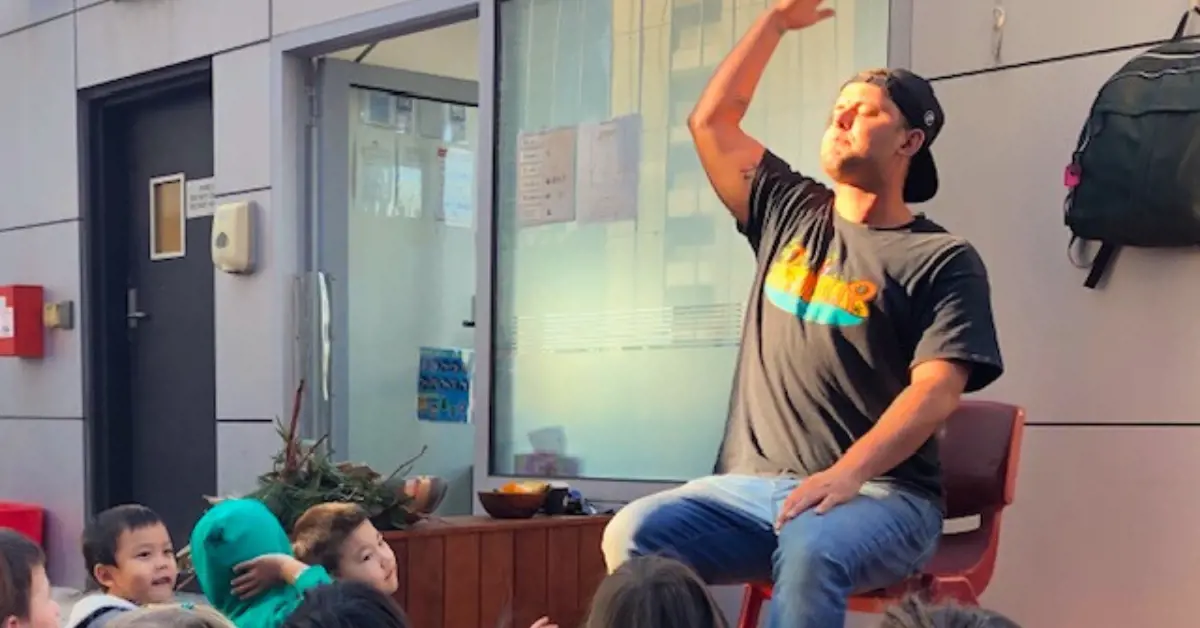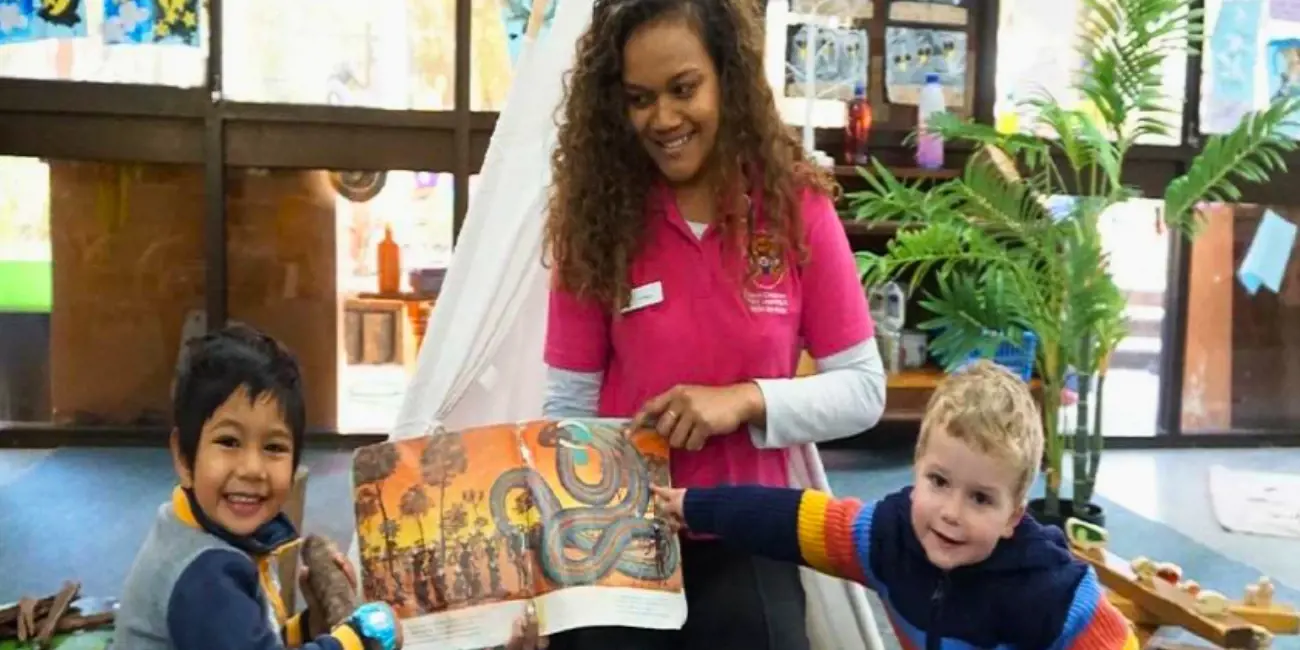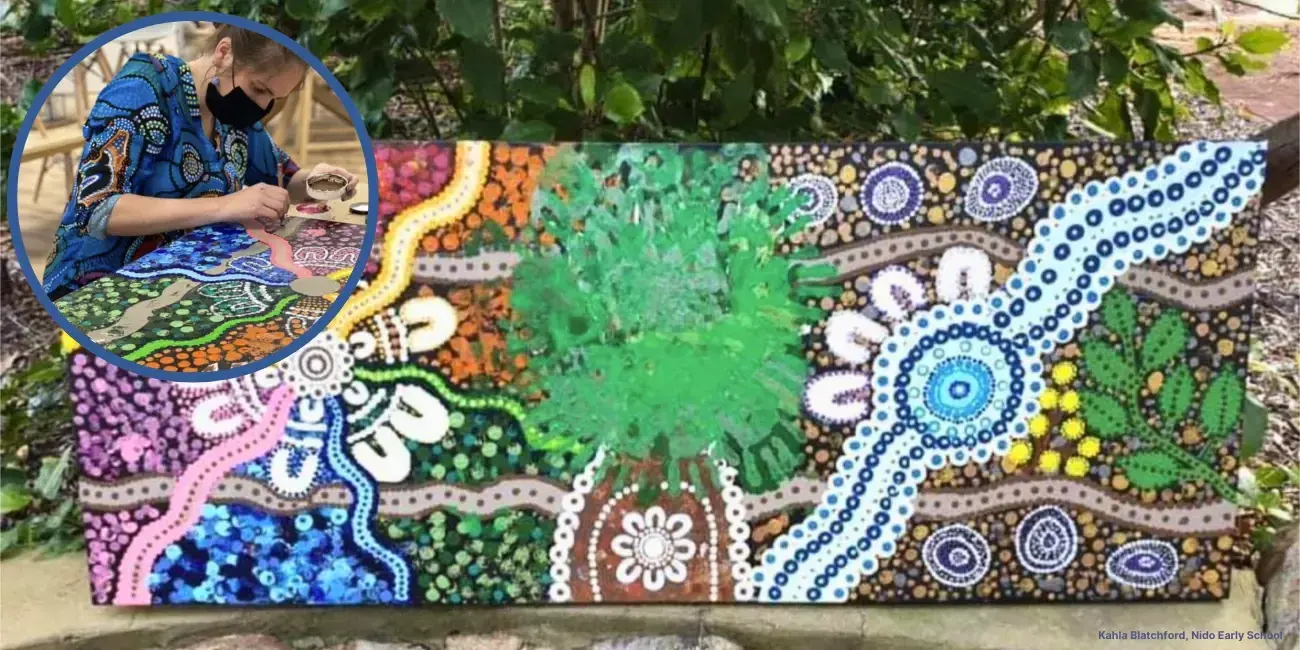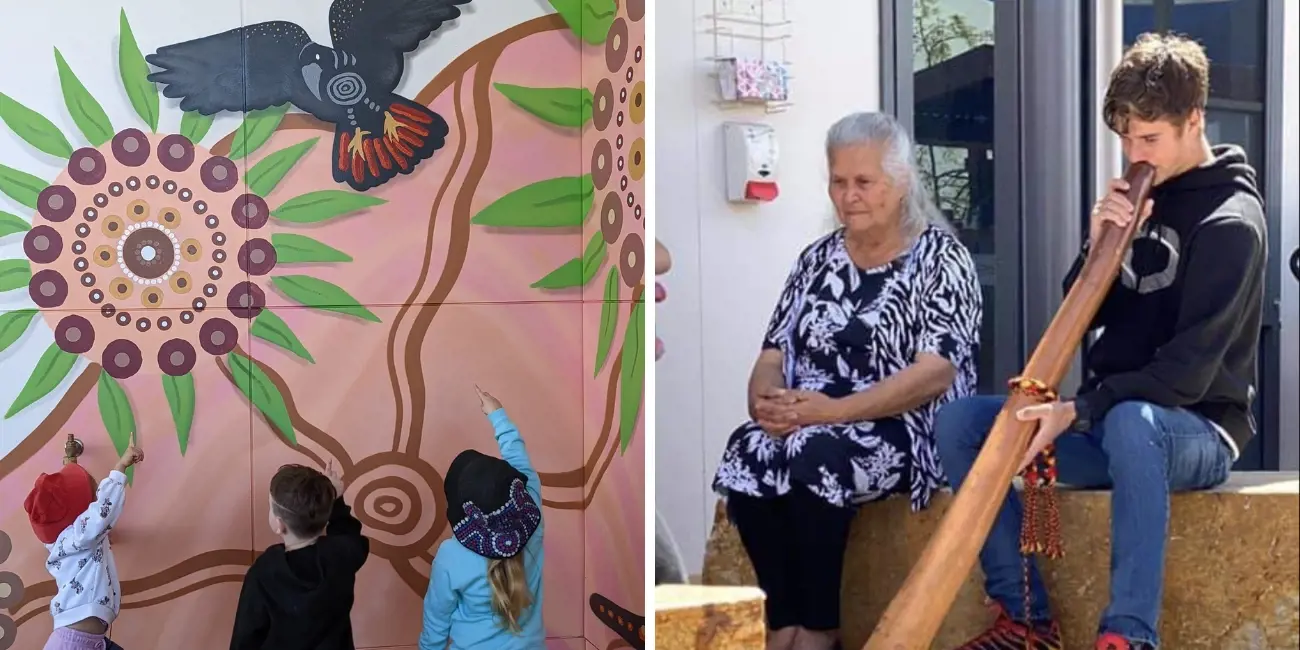National Reconciliation Week is celebrated from May 27th to June 3rd every year. It’s a time to reflect on the relationship between Indigenous and non-Indigenous Australians and to work towards reconciliation.
The 2023 theme for reconciliation week is ‘Be a voice for generations’.
Reconciliation Week is held in high regard throughout childcare services across the nation as it promotes and demonstrates respect, inclusivity, and diversity for generations to come.
As young children's first educators, childcare services have the opportunity to teach children about respect and inclusivity as well as create a safe and supportive environment where everyone feels valued.
Our services do an amazing job
Four-year-old Kindergarten Teacher Linda Wilson, at Sentia Early Learning, says,
“In the 4YO Kindergarten program, Indigenous culture has a strong influence on our daily practice. Last year we started up a community-based approach where we make our personal connection to the ground, sky, and waterways of Kulin Nation through excursions within our community.”
“As Aboriginal and Torres Straight Islanders' connection with the land is deeply interconnected to one’s own identity, well-being, and culture, the aim for us is to create meaningful experiences where we as teachers, children, and families are growing a greater appreciation, knowledge, and respect for the land of our community.”

Image: Sentia Early Learning
Clovel Childcare and early learning believe building and maintaining meaningful, ongoing relationships between Aboriginal and Torres Strait Islander People and the broader Australian community is fundamental to maximise children’s life outcomes and guide their learning journey.
Clovel services have a daily acknowledgement of Country where children sing with the educators and include sign language. Each day, they sing and sign,
'Here is the land,
Here is the sky,
Here are my friends,
And here am I,
We thank the Darug People for the land on which we learn and play'
Of course, this is just one of the ways they incorporate learnings in their services. There is a whole action plan dedicated to reconciliation and acknowledgement.

Image: Clovel Childcare and Early Learning
Developing respectful relationships
Reconciliation in childcare services starts with acknowledging and understanding the histories, cultures, and contributions of Aboriginal and Torres Strait Islander people. It also involves developing respectful relationships with Aboriginal and Torres Strait Islander families, communities, and organisations.
“Among other things, the children have been exploring the mighty Yarra River, local sites of importance, and local art and have also been inspired by Dream Stories about Bunjil, the ancestral wedge-tailed eagle of Kulin Nation. In this way, the children are eager to take on the role as caretakers of the land and their connection to the land and our surrounding community has been growing strong and authentic,” says Linda.
Just how important is Reconciliation Week?
Kahla Blatchford, Executive Service Manager, Nido Early School Brabham comments,
“I have always believed that Reconciliation Week is a valuable time to reflect on our country’s history, culture, and achievements, and come together as a community to seek the truth and make the necessary changes to prevent historical atrocities from happening again. With that being said, I urge the action taken last well beyond the week’s end date and have this as a starting point for bigger change and conversation. Reconciliation must live in the hearts, minds, and actions of all Australians as we work towards a more unified and accepting society and culture.”
What does Reconciliation Week mean to you?
Melody Ingra – Goodstart Early Learning National Cultural Liaison chimes in on what Reconcilation Week means in the Goodstart community.
“National Reconciliation Week represents such a great opportunity every year for centres to reflect on their reconciliation progress and take the time to deeply listen and unlearn and relearn from First Nations people. It’s also a deadly week of incredible events and rich learning experiences for children – involving our centre communities from knowledge holders, Elders, children and families. This year, Goodstart centres have a range of great celebrations planned from Welcome to Country with local Elders, smoking ceremonies, learning about Aboriginal and Torres Strait Islander art, supporting Children’s Ground for ‘Wear It Yellow Day’, to cultural experiences including learning about bush tukka.”
Image: Nido Early School Brabham Kinder Yard | Elder Nan Roma Winmar
“I do feel very blessed to be part of a team that is very inclusive of the Aboriginal culture in what they do, day in day out. They have been fantastic at finding ways where we can meaningfully and respectfully include Aboriginal and Torres Strait Islander perspectives into our programs and spaces. When the Nido Early School Brabham opened, we created a beautiful mural in the kinder yard that represents the local community, with flora and fauna including yongka (kangaroo) and kaarak (red tail black cockatoo),” Kahla Blatchford, Nido Early School Brabham.
Celebrating local Indigenous businesses and locations
For reconciliation week last year, the children at Sentia Early Learning cleaned up their local Port Philip Bay beach in line with the annual theme of reconciliation week, 'Be brave, make a change.' The experience turned into a piece of art for their exhibition which celebrated our land.
Linda Wilson says, “This year, we will work on the theme ‘Be a voice for generations’. The children have made their voices heard and they wish to create their own acknowledgement of country for our outdoor playground. The children's personal acknowledgement of country for this space is our statement and reflection of our closer surroundings and land. The children's voices are here to teach us the important message of reconciliation at this point in time and for future generations.”
While the educators at Nido Early School are always on the lookout for local businesses to support.
“I’m always looking at various markets that are upcoming to source from. There are so many beautiful resources and art pieces from these markets. I love seeing the upcoming young artist and their talents. I also encourage educators, even though not local, to purchase authentic clothing that they can proudly wear. We’ve had discussions around doing your research when you are purchasing something Indigenous to ensure that the company as a whole is Aboriginal or Torres Strait Islander made and designed so we know profits are going back to the community.” says Kahla Blatchford, Executive Service Manager Nido Early School Brabham.
It's not just a week, it's ongoing
Reconciliation means working together to build partnerships that are based on trust, mutual respect, and shared goals. This can involve inviting Elders to visit the service, participating in cultural traditions, or supporting local Indigenous businesses.
Linda Wilson recalls, “For reconciliation week last year, the children decided to clean up our local Port Philip Bay beach in line with the annual theme of reconciliation week, ‘Be brave, make a change.’ The experience turned into a piece of art for our exhibition in which we celebrated our land. This year, we will work on the theme, ‘Be a voice for generations.’ The children have made their voices heard and they wish to create their own acknowledgement of country for our outdoor playground. The children's personal acknowledgement of country for this space is our statement and reflection of our closer surroundings and land. The children's voices are here to teach us the important message of reconciliation at this point in time and for future generations.”
Reconciliation in childcare services is an ongoing process that requires commitment, empathy, and respect. It means creating a safe and inclusive environment where children can learn about and celebrate the rich diversity of Indigenous cultures and histories. As you can see, our early educators are very dedicated to teaching our children the traditions and helping them understand and respect Indigenous people and their culture.
National Reconciliation Week is an opportunity for childcare services to reflect on their role in the reconciliation process and to take action toward building respectful and inclusive relationships with Aboriginal and Torres Strait Islander people.
It is a time to learn, to share, and to celebrate the resilience and strength of Indigenous communities.




































